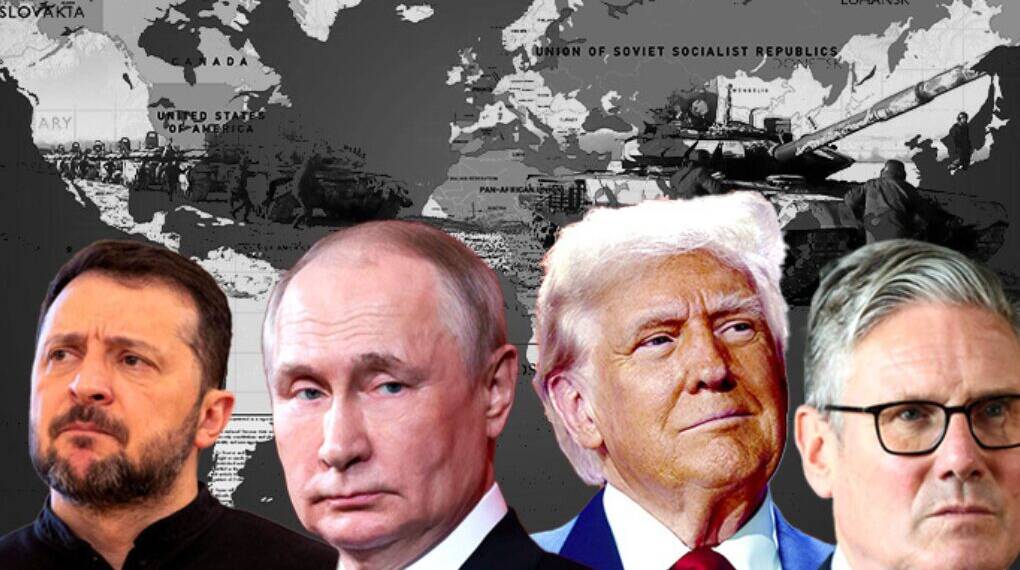British Prime Minister Sir Keir Starmer and Ukrainian President Volodymyr Zelenskyy have publicly “welcomed” US President Donald Trump’s new deadline for Russia to abandon stalling tactics and make meaningful progress toward a peace deal, Downing Street confirmed. In a phone call on Friday, both leaders agreed that “it was clear Russia was the only barrier to peace,” reaffirming a unified approach to end the war in Ukraine.
This endorsement follows Trump’s announcement of a shortened deadline—August 8, 2025—for Russian President Vladimir Putin to show tangible efforts toward ceasefire, or else face punitive US sanctions and tariffs.
The Human Cost of Conflict: Condolences and Renewed Urgency
Prime Minister Starmer began the call by expressing heartfelt condolences for the recent deadly missile and drone attacks on Kyiv, which claimed 31 lives, including five children. He described the violence as “a bitter reminder of the human cost” inflicted by Russia’s ongoing aggression. Zelenskyy echoed this sentiment on social media (X), emphasizing the brutality of the strikes and the urgent need to stop the killings, enhance protection for Ukrainian civilians, and compel Russia to end the war.
Trump’s Deadline: A Clear Ultimatum to Russia
President Trump announced during his Scotland visit—and reiterated aboard Air Force One—that Russia has “10 days from today” (around August 8) to act meaningfully toward peace efforts or face new sanctions. This ultimatum shortens an earlier 50-day deadline, reflecting deepening impatience with Moscow’s lack of progress. Both Starmer and Zelenskyy welcomed this firm timeline, urging Russia to cease delaying tactics that hinder negotiations and fuel continued conflict.
Shared Goals: Russia as the Sole Obstacle to Peace
The official summary of the Starmer-Zelenskyy call underscored their shared conviction that Russia is the sole obstacle preventing peace. Both leaders agreed that meaningful steps from Moscow are necessary to advance any ceasefire deal. Zelenskyy highlighted Russia’s genuine fear of sanctions despite its public pretenses of indifference, emphasizing that coordinated restrictive measures will continue and intensify.
Strengthening Military Cooperation: Technology Sharing and Drone Production
The two leaders also discussed robust progress in battlefield cooperation initiated in June, especially in sharing advanced battlefield technology and the urgent need to scale up production of interceptor drones. Zelenskyy stressed the specific financial requirements involved, and Starmer committed to finding solutions to meet these needs swiftly.
These efforts underscore deepening UK-Ukraine military partnership supporting Ukraine’s defense resilience amid ongoing hostilities.
Reinforcing Governance: Ukraine’s Anti-Corruption Advances
Starmer also hailed Ukraine’s recent passage of a critical anti-corruption bill, a significant reform measure aimed at sustaining and enhancing international support. This legislation reflects Kyiv’s commitment to good governance and rule of law even during wartime, bolstering its status as a responsible partner for Western countries.
US Sanctions Threat: Elevating the Stakes
Trump’s declaration about imminent additional sanctions and tariffs if Russia fails to comply represents a stiffer Western stance. While Russian officials have thus far downplayed the threats, the prospect of punitive economic measures signals increased diplomatic pressure and the serious consequences Moscow faces should it continue its obstruction of peace efforts.
Geopolitical Implications: Unified Front Against Russian Aggression
The visible coordination among Starmer, Zelenskyy, and Trump delivers a potent message to Moscow that the West and Ukraine are aligned in their resolve. This multifaceted strategy, combining humanitarian concern, diplomatic pressure, and heightened military support, seeks to break a conflict stalemate that has persisted for years.
It also serves as a clear warning that failure by Russia to move toward peace risks further escalation of sanctions and other punitive actions.
A Critical Juncture for Peace in Ukraine?
The endorsement of President Trump’s deadline by British Prime Minister Keir Starmer and Ukrainian President Volodymyr Zelenskyy marks the quest to end the war in Ukraine. The coming days are crucial, as the August 8 deadline frames the near-term trajectory for peace negotiations, regional stability, and wider geopolitical dynamics. The sustained unity of Western powers, combined with Ukraine’s resilience and reform efforts, remains essential in overcoming Russia’s aggressive stance and achieving a durable resolution.







